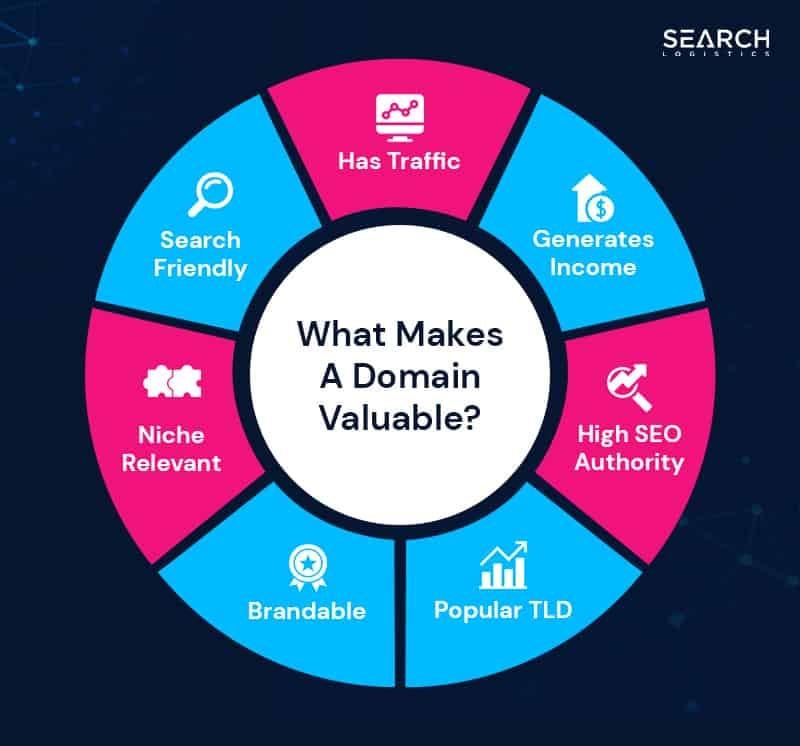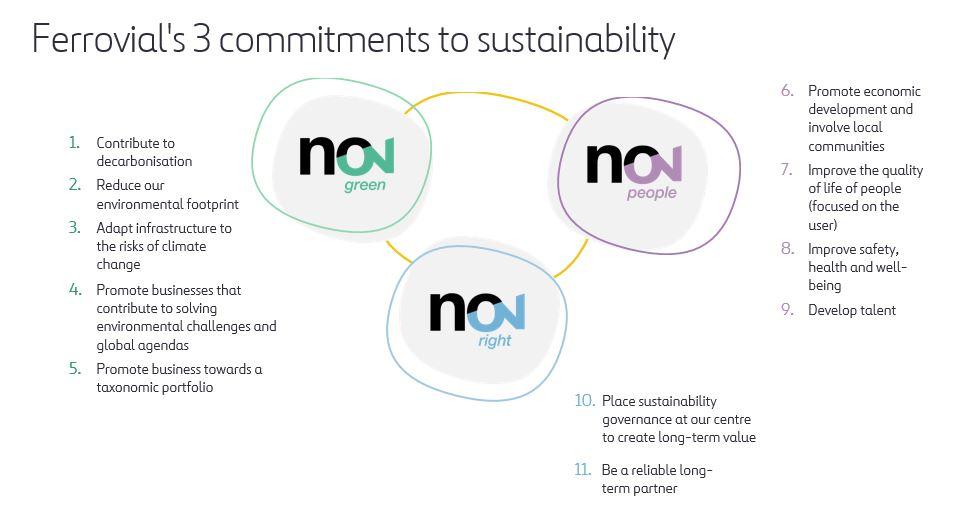Table of Contents
- Understanding the Fundamentals of Domain Flipping
- Evaluating Potential Domains for High Resale Value
- Strategies to Successfully Flip Domains for Profit
- Common Mistakes to Avoid in Domain Flipping
- Tips for Building a Sustainable Domain Portfolio
- Q&A
- Closing Remarks


Understanding the Fundamentals of Domain Flipping
Domain flipping is an intriguing strategy that allows entrepreneurs to buy and sell domain names for profit. Understanding its core principles can set you on a successful path. Initially, the process involves researching and purchasing domain names that have potential value. This typically means looking for names that are memorable, short, and easy to spell. The goal is to find domains that may be attractive to businesses or individuals, making them suitable for resale at a higher price.
Once you’ve acquired a domain, the next step is to enhance its appeal. This can be achieved through various methods, including:
- Optimizing for SEO: Choosing keywords that increase visibility in search engines.
- Branding: Creating a strong brand identity around the domain to increase perceived value.
- Marketing: Promoting the domain through social media, online marketplaces, and domain auction sites to reach a wider audience.
the actual sale involves understanding your market, setting a competitive price, and negotiating effectively. Having a clear price strategy is crucial, as it can determine your success in flipping. Here’s a simple overview of potential profit margins based on the initial investment:
| Initial Investment | Resale Price | Profit |
|---|---|---|
| $10 | $100 | $90 |
| $50 | $500 | $450 |
| $100 | $1,000 | $900 |


Evaluating Potential Domains for High Resale Value
When diving into the world of domain flipping, it’s crucial to evaluate potential domains meticulously to ensure they have high resale value. A well-chosen domain can become a lucrative investment, providing substantial returns down the line. Key factors that influence the value of a domain include its length, memorability, and keyword relevance. Domains that are short, catchy, and easy to spell tend to attract more interest. Additionally, consider the domain extension; while .com is still king, niche extensions like .tech or .design can also hold significant value if they align with the target market.
Another essential aspect to consider is the domain’s search engine ranking potential. Analyze existing traffic and backlinks using tools like SEMrush or Ahrefs. Domains with established traffic have a built-in audience, making them inherently more valuable. Look for domains that have previously ranked well for relevant keywords, as they can be rebranded or redirected towards a new project. Moreover, consider the age of the domain; older domains often carry more weight in search engine algorithms, which can enhance their appeal to future buyers.
| Factor | Significance | Example |
|---|---|---|
| Length | Shorter domains are easier to remember and type. | example.com |
| Keywords | Domains that contain popular keywords can attract organic traffic. | bestcookingrecipes.com |
| Extension | Different extensions can affect marketability. | innovation.tech |
understand the market demand for specific niches. Research current trends, emerging industries, and popular topics to determine what potential buyers might be looking for. Utilizing tools such as Google Trends can provide insights into what domains are gaining traction in various sectors. This proactive approach allows you to identify undervalued domains in trending markets, positioning yourself for a profitable sale later on. Ultimately, a strategic evaluation process can significantly increase the likelihood of securing domains with high resale value, making your investment in domain flipping not just worthwhile, but potentially very rewarding.
Strategies to Successfully Flip Domains for Profit
To successfully flip domains for profit, it’s essential to conduct thorough market research before making any purchases. Identifying trending keywords and niches can help you acquire domains that have the potential for high resale value. Use tools like Google Trends or Keyword Planner to gauge interest in specific terms. Furthermore, consider buying domains that have expired but still possess a good backlink profile. These domains often have built-in traffic, making them more attractive to potential buyers.
Another effective strategy is to focus on branding potential. A short, memorable domain name tends to sell better because it’s easier to market. Aim for domains that are .com or other popular extensions, as they often command higher prices. It’s also beneficial to think like an entrepreneur. What could be a great name for a business or website in the near future? Here are some qualities of desirable domain names:
- Easy to spell and pronounce
- Relevant to current market trends
- Incorporates popular keywords
- Short and catchy
Lastly, timing can significantly impact your domain flipping success. Consider holding onto your domains for a while to increase their value, as emerging markets or trends may boost demand. Utilize platforms such as GoDaddy Auctions or Flippa, which allow you to reach a larger audience of potential buyers. Another aspect to pay attention to is pricing; consider using a tiered pricing strategy where you set introductory rates lower to attract initial buyers, progressively increasing prices as interest grows.


Common Mistakes to Avoid in Domain Flipping
When venturing into the world of domain flipping, certain pitfalls can hinder your success. One of the most significant errors is overlooking the importance of thorough market research. Understanding current trends, popular keywords, and target markets is vital. Many newcomers lose money by investing in domains that may seem appealing but have little to no interest from potential buyers. Hence, investing time in researching the right keywords and evaluating what is currently in demand can drastically improve flipping outcomes.
Another prevalent mistake is neglecting to consider the long-term value of a domain. Flippers often focus solely on current trends or aesthetics, disregarding the potential for future appreciation. A domain name that aligns with a growing niche or has scalability potential can yield better returns than a trendy yet fleeting name. It’s essential to look beyond immediate sales opportunities and evaluate domains based on their everlasting relevance. Various characteristics, such as length, ease of spelling, and relevance, can play a crucial role in a domain’s long-term success.
| Characteristic | Importance |
|---|---|
| Length | Shorter domains are easier to remember and type, increasing their marketability. |
| Spelling | Simple and clear spelling helps attract more visitors and reduces confusion. |
| Relevance | Domains that relate to specific niches can attract a more targeted audience, boosting resale value. |
Furthermore, failing to build a brand or online presence for a domain can significantly affect its resale potential. A domain with an established website, even a simple one, can showcase its potential to buyers. Investing time in creating basic content, social media presence, or even landing pages can enhance a domain’s perceived value. By establishing credibility, you attract a more substantial pool of buyers who see the domain’s full potential, thus leading to higher profit margins during resale.


Tips for Building a Sustainable Domain Portfolio
Building a sustainable domain portfolio requires a strategic approach and a keen understanding of market trends. Before diving in, consider researching market demands to identify niches that offer growth potential. Understanding consumer behavior can help you select domains that resonate with target audiences. Moreover, prioritize quality over quantity; possessing fewer, high-value domains is often more rewarding than acquiring numerous average ones.
When expanding your portfolio, focus on domains that have SEO potential. Short, memorable, and keyword-rich domains can enhance visibility and attract organic traffic. Additionally, keep an eye on emerging trends and acquire domains related to new technologies or popular culture. This foresight can position your portfolio to leverage rising interest in specific areas, paving the way for lucrative flipping opportunities.
Lastly, never underestimate the importance of domain management. Regularly assess your portfolio for opportunities to sell or rent out domains that aren’t performing well. Consider implementing a tracking system that monitors traffic and engagement for each domain. Use this data to make informed decisions about keeping or selling assets. Establishing a methodical approach ensures your portfolio evolves in step with the ever-changing digital landscape.
Q&A
Q&A: Is Domain Flipping Worth It?
Q1: What is domain flipping? A1: Domain flipping is the practice of buying domain names at a low price and selling them later at a higher price. It’s similar to real estate—where investors acquire properties, improve them, and sell them for profit. In the domain world, this means purchasing desirable, memorable, or keyword-rich domains to resell them to end-users, businesses, or investors who see value in that digital real estate.Q2: How do I know if a domain name has resale potential? A2: Several factors contribute to a domain’s resale potential. Look for short, memorable names that are easy to spell and pronounce. Domains that incorporate popular keywords, geographical locations, or trending phrases also tend to attract buyers. Additionally, consider the extension (.com, .net, etc.); .com domains usually hold more value because they are the most recognized and sought after.
Q3: What are the initial costs involved in domain flipping? A3: The initial costs can vary significantly depending on where and how you purchase your domains. Generally, registering a domain name can range from $10 to $50 per year. Additionally, you may want to invest in premium domains, which can range from hundreds to thousands of dollars. If you’re serious about flipping domains, consider setting aside a budget for transactions, marketing, and potential renewal fees.
Q4: Is domain flipping a viable source of income? A4: Domain flipping can be a lucrative source of income, but it often requires dedication, research, and a bit of luck. While some individuals have made significant profits, many factors affect potential earnings, including market demand, competition, and how effectively you market your domains. It’s essential to treat flipping domains like a business—learning the market trends and strategically selecting domains will improve your chances of success.
Q5: What are the common challenges faced in domain flipping? A5: Some challenges include identifying valuable domain names and the potential for unforeseen market shifts. Flippers may also experience difficulties in pricing their domains competitively while ensuring they still make a profit. Furthermore, holding onto a domain for too long might tie up funds without generating any income, so understanding when to sell is crucial to avoid losses.
Q6: Are there any tips for success in domain flipping? A6: Absolutely! First, conduct thorough research on industry trends and emerging keywords. Stay up-to-date with popular culture and tech advancements to identify valuable domain name opportunities. Networking with other domain investors can provide insights and access to potential buyers. Also, use effective online platforms to showcase your domains. be patient and don’t rush the selling process—finding the right buyer takes time.
Q7: How can I sell my domains effectively? A7: Selling your domains can be done through several channels, including domain marketplaces (like Sedo, Flippa, or GoDaddy Auctions), auction platforms, or even directly through your own website. Create enticing listings with clear descriptions and good visuals. Employ social media and SEO strategies to reach potential buyers, and consider negotiating prices to find a win-win situation.
Q8: is domain flipping worth pursuing? A8: Whether domain flipping is worth the effort depends on your goals, skills, and market understanding. If you’re passionate about digital real estate, willing to invest time in researching trends, and prepared for the ups and downs, it can be a rewarding venture. However, if you’re looking for guaranteed quick profits, domain flipping may not be your best option. As with any investment, research and strategy will be your best allies in navigating this digital landscape.

